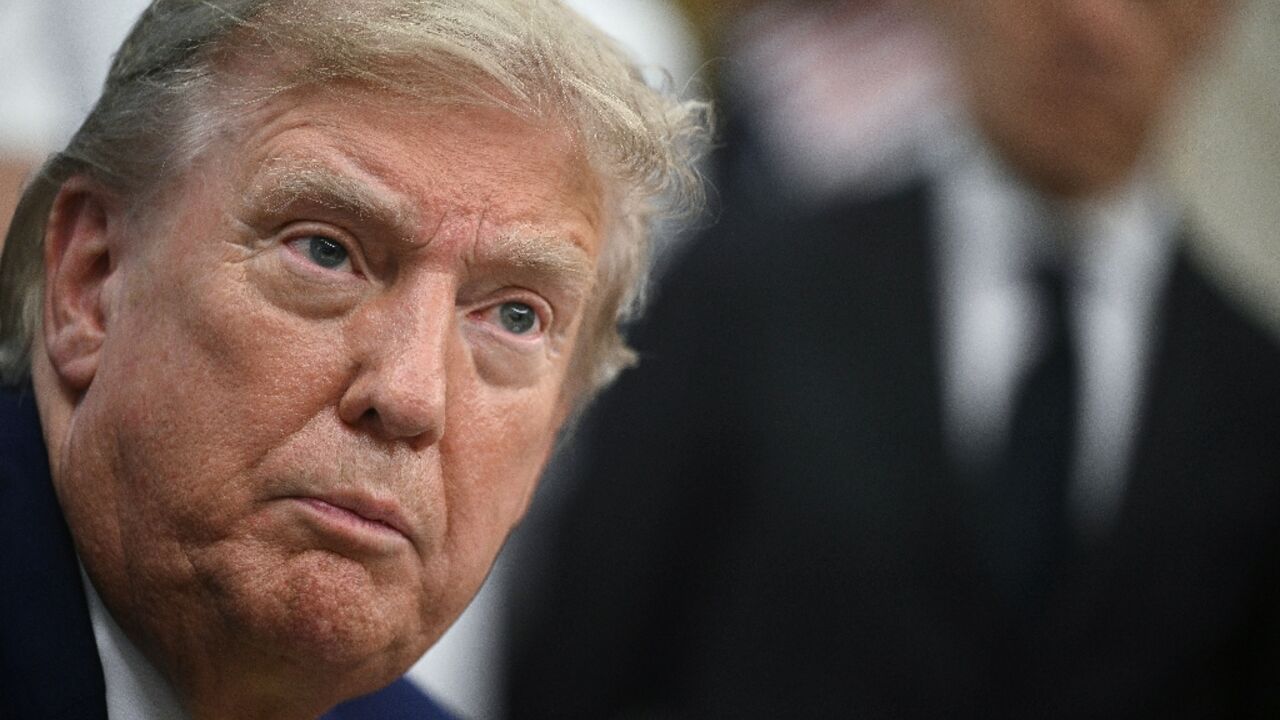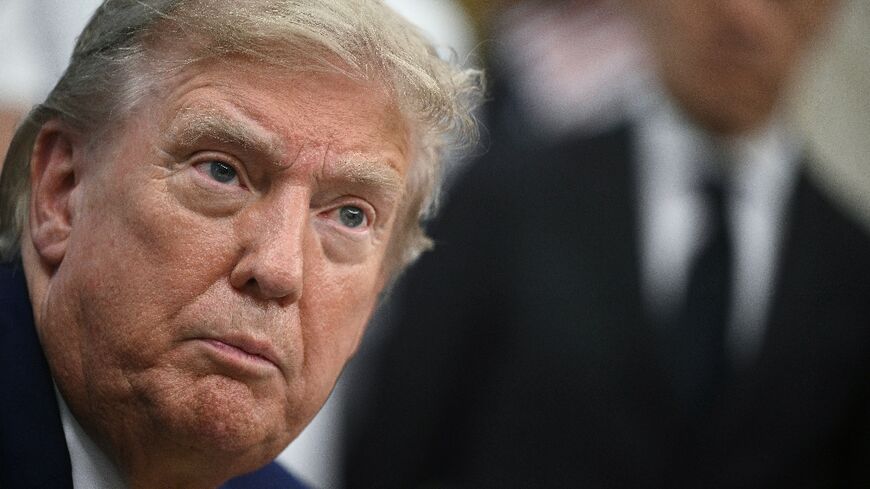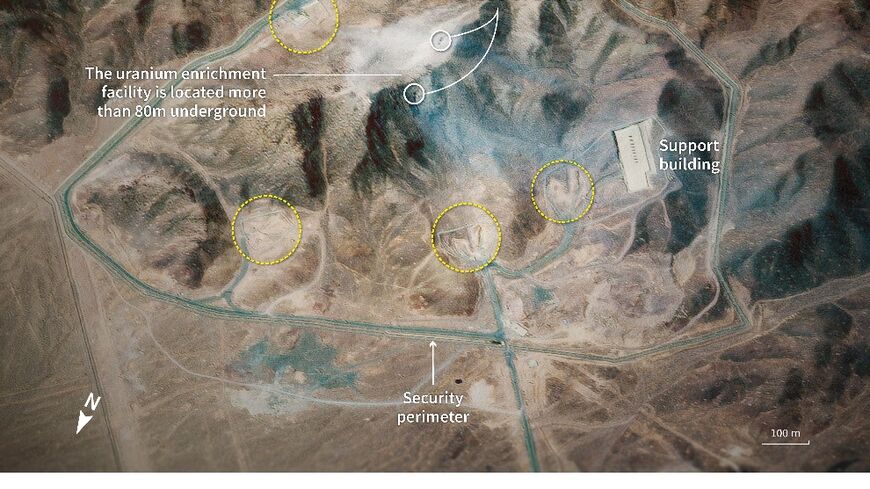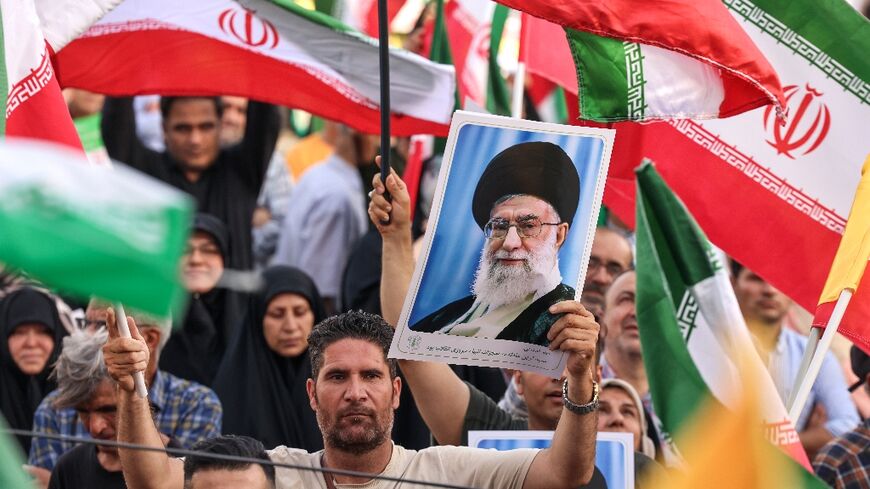Iran-Israel war: latest developments

Israel's war with Iran has entered its second week with the Israeli military chief warning of a "prolonged campaign".
Here are the latest developments:
- Delayed by 'two or three years' -
Israel's foreign minister said its strikes on Iran have delayed Tehran's potential to develop a nuclear weapon by at least two or three years.
"According to the assessment we hear, we already delayed for at least two or three years the possibility for them to have a nuclear bomb," Foreign Minister Gideon Saar said in an interview.
Western powers have repeatedly expressed concerns about the rapid expansion of Iran's nuclear programme, questioning in particular the country's accelerated uranium enrichment.
The International Atomic Energy Agency said that Iran is the only country without nuclear weapons to enrich uranium to 60 percent.
However, it added that there was no evidence it had all the components to make a functioning nuclear warhead.
- 'Prolonged campaign' -
Israel's armed forces chief Eyal Zamir warned that his country should be "ready for a prolonged campaign" against Iran.
"We have embarked on the most complex campaign in our history to remove a threat of such magnitude, against such an enemy. We must be ready for a prolonged campaign," Zamir said in a video statement to Israelis.
Israel launched attacks against Iran on June 13 which have combined targeted assassinations of key military personnel with strikes on Iran's nuclear and missile facilities.
He said Israelis needed to brace for more difficulties, as the country comes under daily attack from Iranian ballistic missiles.
In an interview with German publication Bild, Israel's top diplomat Gideon Saar said Israel believes it has set back Iran's nuclear programme by "two to three years" but said the strikes would continue in order "to remove this threat."
- Geneva meeting -
As US President Donald Trump mulls the prospect of entering the war, top diplomats from Britain, France and Germany met with their Iranian counterpart Abbas Araghchi in Geneva.
Referring to nuclear negotiations with Washington that had been derailed by the war, Araghchi said Iran is ready to consider diplomacy "once the aggression is stopped".
Tehran did "support the continuation of discussion with" the European countries and was willing "to meet again in the near future", Araghchi told reporters.
French Foreign Minister Jean-Noel Barrot urged Iran to resume negotiations with all sides "without awaiting the cessation of strikes".
- Trump says Iran wants talks -
Trump said the Europeans were "not going to be able to help" end the war.
"Iran doesn't want to speak to Europe. They want to speak to us," he said.
He also said Iran had a "maximum" of two weeks to avoid possible US air strikes, indicating he could take a decision before the fortnight deadline he set a day earlier.
- New day of strikes -
Israel said Saturday it's air force had launched fresh airstrikes against missile storage and launch sites in central Iran.
A US-based NGO, the Human Rights Activists News Agency, put the death toll in Iran at 657 people including at least 263 civilians, citing Iranian sources and reports.
Iran said Sunday that Israeli strikes had killed at least 224 people, including military commanders, nuclear scientists and civilians. Authorities have not issued an updated toll since.
Iran launched two salvoes of missiles at Israel on Friday. At least 19 people were injured in the northern Israeli port city of Haifa, a local hospital said.
At least 25 people have been killed in Israel since the war began, according to Israeli authorities.
- Diplomats quit Tehran -
Britain said it had withdrawn its embassy staff from Iran, while Switzerland announced the temporary closure of its embassy.
"Our embassy continues to operate remotely," the British foreign ministry said.
Switzerland cited the "highly unstable situation on the ground" for its decision. It said it would continue to fulfil its role representing US interests in Iran.
burs-kir/ami/gv/acb/tc




